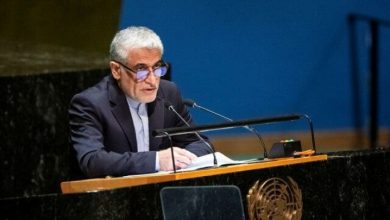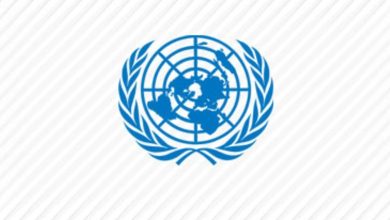Association for Defending Victims of Terrorism – Fionnuala Ní Aoláin and Anne Charbord have asserted, in their article, on repatriating terrorists from Northeast Syria.
They say, the plight of women and children detained in camps in northeast Syria since the collapse of the self-styled Islamic State’s “caliphate” has received significant attention, and some are finally being brought back to their home countries after unconscionable years-long delays by multiple countries, including Western States.
By contrast, the fate of more than 10,000 boys and men deemed “associated” with the group (also known as ISIL/ISIS/Daesh), including approximately 2,150 third-country nationals, has been mostly ignored by governments and international organizations, with the exception of independent United Nations human rights experts’ offices. But recent judicial decisions are beginning to break a logjam in which countries that claim to abide by the rule of law must reckon with the consequences of not returning men, including the denial of due process to the accused and justice to their victims.
The recent earthquake that devastated parts of southern Turkey and northwest Syria thankfully caused few casualties and only limited infrastructure damage in northeast Syria, so this should not hinder Western efforts to address the human rights crisis of the detainees. But the disaster has increased the humanitarian needs of populations and the challenges of humanitarian access across northern Syria. So it is especially crucial for the States of the detainees’ origins to assist the de facto authorities in northeastern Syria by removing the burden of detention to allow them to focus on providing the needed humanitarian relief.
Thousands of men and boys captured between 2017 and 2019 have been held indefinitely by the Syrian Democratic Forces, backed by what is now known as the Global Coalition Against Daesh. The detainees are confined in more than 15 makeshift detention centers, mostly converted schools and hospitals, throughout northeast Syria. The men and boys are held in overcrowded cells (in some cases more than 30 in cells built for six individuals), and they lack food, drinkable water, and medical care. They are most often portrayed as dangerous “terrorist fighters” and “jihadis” who deserve to be treated as “sub-humans,” certainly not considered as worthy of repatriation to their countries of citizenship, notably because of an alleged risk they would pose there.
But none of these men have ever been brought before a judge to determine whether they are rightfully and lawfully detained, and there is no law that would legally underpin their detention. Some were children at the time of their detention. Most have never been charged with any specific offense, and there is no prospect of a trial in the region (more on that later). Furthermore, access to them – which had always been extremely limited – has ground to a halt since a January 2022 attack on an established prison in Al-Hasakeh allegedly by ISIL in an apparent attempt to free some of the detainees. The prison held 5,000 individuals at the time, including 700 children. Reports suggested that 300 people were thought to have been killed in the several days of fighting that ensued, and 100 boys are presumed dead or injured from this attack.
Instead of finding legally sound solutions to their entrenched and protracted arbitrary deprivation of liberty in inhumane conditions, including repatriations to their countries of origin for those who should receive a fair trial for offenses committed, the practice of arbitrary detention is becoming entrenched.
Against this backdrop, however, judicial decisions are beginning to shift the scenario. Canada’s Federal Court decision of Jan. 20, for example, requires Canadian authorities to assist in the repatriation of four Canadian men held by the Syrian Defense Forces as de facto authority in northeast Syria. It is a landmark decision, with its focus on the legal obligations of States to their male detainees. By tackling the situation of the men from a rights-based perspective and reinstating them as rights-holders under the Canadian Constitution, the court clearly departs from seeing them solely as security risks.
In practical terms, and possibly as a result of these decisions, a number of countries have brought their nationals home. Just since October 2022, there have been 17 repatriations to Australia, 3 to Barbados, 102 to France, 12 to Germany, 40 to the Netherlands, 38 to Russia, 2 to the U.K., 13 to Spain, and just over 2,000 to Iraq. These figures show the determination of the Kurdish authorities to support and enable repatriations, as well as the sheer practical feasibility of such movements, contrary to national arguments pertaining to lack of access and risks posed by these operations. Even Canada, initially very reluctant to repatriate anyone other than a 5-year old orphan, repatriated four individuals at the end of 2022, including two women. Canada, pressed by litigation, just agreed to repatriate a further 21 women and children, as acknowledged in the ruling.
Thus far, courts in northeast Syria have tried only Syrian nationals, and those trials have not complied with fair-trial standards under international human rights treaties or under Common Article 3 of the Four Geneva Conventions. There is a severe lack of resources including judicial, technical, and legal capacity, as well as infrastructure to support the processing of foreign nationals for trials in the northern Syrian Arab Republic.
The geopolitical instability of the region also is a factor, including attacks by non-State armed groups also designated as terrorist organizations (such as the above-referenced attack against the prison in Al-Hasakeh in January 2022, which led to the death or disappearance of 100 boys). That and the resulting numerous counterterrorism operations by the SDF and its security partners make any augmentation and amelioration of trial proceedings highly unlikely in any foreseeable future. Similarly, the possibility of a form of “international,” “hybrid,” or “regional” court, can at best be described as political rhetoric or wishful thinking.
Credible, fair trials are imperative, of course, not only to provide justice for the accused, but also for the victims of terrorism. In the States of origin, when evidence is available, governments must meet their obligations by going beyond trials for returnees on terrorist offenses such as membership in proscribed groups or travel to join them. Some may need to be tried for core international offenses, including for acts of genocide and crimes against humanity or perpetration of killings, torture, serious deprivation of liberty, rape, sexual assault, and hostage-taking. Certainly in an ideal world, justice would be delivered close to where the offenses and crimes were committed, but for the reasons outlined above, there is no effective possibility of this, and so the failure to repatriate and apply the criminal justice system to the full sells short the victims of terrorism and abrogates the responsibility of the States whose nationals have committed these violations.
Failure to properly pursue these terrorism cases also abrogates a fundamental tenet of the Coalition to Defeat Daesh — the promise of “never again” — by failing to hold those who committed grievous crimes responsible for them. A failure to repatriate maintains the entirely unacceptable status quo that no justice is delivered – not to the victims of serious core crimes, not to victims of terrorism, and not to the men who will continue to languish in abhorrent conditions. The solution clearly lies in the hands of States of origin of these alleged perpetrators. The question is whether these States will live up to their obligations to deliver and support justice all their citizens.
Fionnuala Ní Aoláin is Executive Editor at Just Security. U.N. Special Rapporteur on the Promotion and Protection of Human Rights and Fundamental Freedoms While Countering Terrorism. This article is written in the author’s personal and academic capacity.




